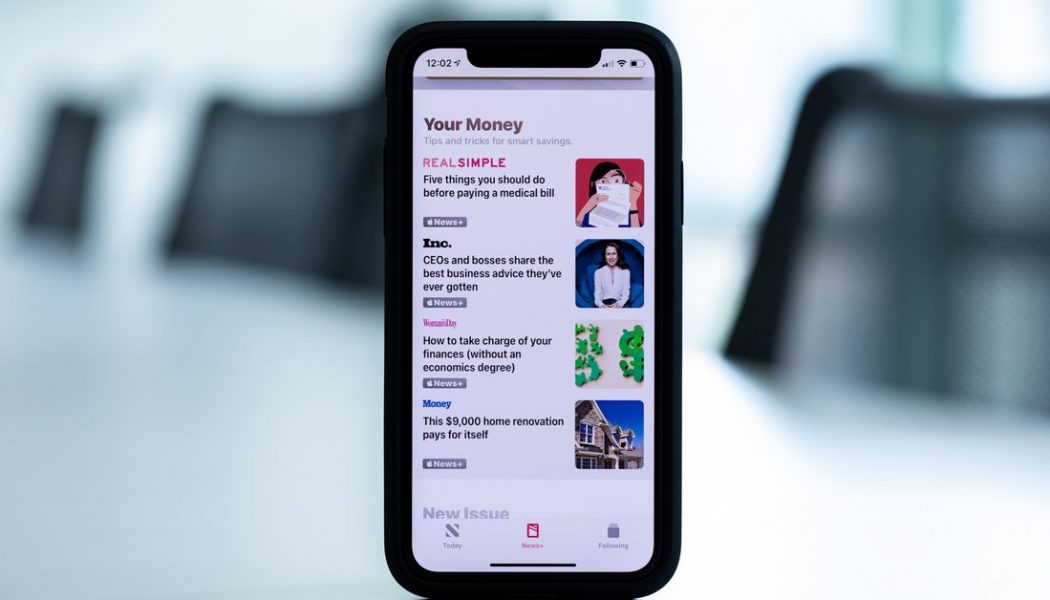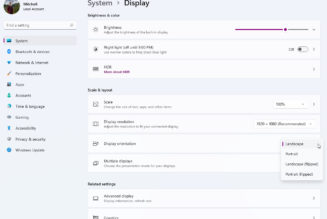
Major US news publishers have joined the list of companies and app developers criticizing Apple’s App Store terms as unfair and potentially anti-competitive. The digital media trade association Digital Content Next — which includes newspapers like The New York Times and The Washington Post and numerous magazines, broadcasters, and websites (Vox Media, parent company of The Verge, is also a member) — sent a letter to Apple CEO Tim Cook on Thursday. The letter asks the Apple chief executive what would be necessary to negotiate a deal similar to the one it granted Amazon in 2016 for its Prime video app. News of the letter was first reported today by The Wall Street Journal.
“We would like to know what conditions our members — high quality digital content companies — would need to meet in order to qualify for the arrangement Amazon is receiving for its Amazon Prime Video app in the Apple App Store,” the letter, penned by Digital Content Next CEO Jason Kint, reads.
That deal, revealed as part of a House antirust hearing that brought Cook and other major tech executives to Capitol Hill to testify late last month, granted Amazon a more generous 85-15 percent revenue share with Apple for in-app subscriptions of Prime Video. Apple typically takes a 30 percent cut of all in-app purchases.
That “Apple tax,” as it’s sometimes called, is at the center of both a European Union antitrust investigation and a legal and regulatory showdown with Fortnite creator Epic Games, which sued Apple last week after the iPhone-maker removed the battle royale game from the App Store over Epic’s inclusion and promotion of an alternative in-app payment system. (Epic sued also Google after it removed Fortnite from the Play Store for similar reasons as Apple.) The App Store cut in addition to Apple’s other restrictions it imposes on developers have become central issues for the iPhone maker in repeated dustups with third-party developers of late, including Hey email service creator Basecamp and Facebook.
Now news publishers, which have had a contentious relationship with Apple since the introduction of Apple News, are starting to take issue with the App Store cut, too. Although Apple isn’t responsible for the online ad duopoly that has helped decimate revenues for news publishers over the last two decades (that would be Facebook and Google), it does operate a massive news platform across iOS and macOS in the form of the Apple News app and its magazine-focused subscription platform, Apple News Plus.
Publishers have taken issue in the past with Apple’s control over in-app ads and user data that might help publishers monetize content shared on the platform. The New York Times notably declined to participate in Apple News Plus over the platform’s reportedly unfavorable terms, and the publisher even pulled all of its articles from the standard, free version of Apple News back in June over similar concerns.
In the letter, Kint brings up Cook’s response regarding the Amazon deal, in which Cook said such terms are available to any developer “meeting the conditions.” Cook never clarified what those conditions are and which in reality presumably involve being a gigantic corporate tech rival like Amazon, whose CEO Jeff Bezos personally negotiated with Apple senior vice president Eddy Cue to secure the terms, according to emails revealed by the House antitrust subcommittee.
“Nearly all of DCN’s members offer apps in the Apple App Store and, as noted above, many offer subscription-based access to a wide variety of content. The terms of Apple’s unique marketplace greatly impact the ability to continue to invest in high-quality, trusted news and entertainment particularly in competition with other larger firms,” Kint writes. “In keeping with your statement to the Committee, I ask that you clearly define the conditions that Amazon satisfied for its arrangement so that DCN’s member companies meeting those conditions can be offered the same agreement. I look forward to discussing this with you.”
Update August 20th, 7:42PM ET: Added that Digital Content Next includes major digital media companies, news broadcasters, and websites, including Vox Media, the parent company of The Verge.










